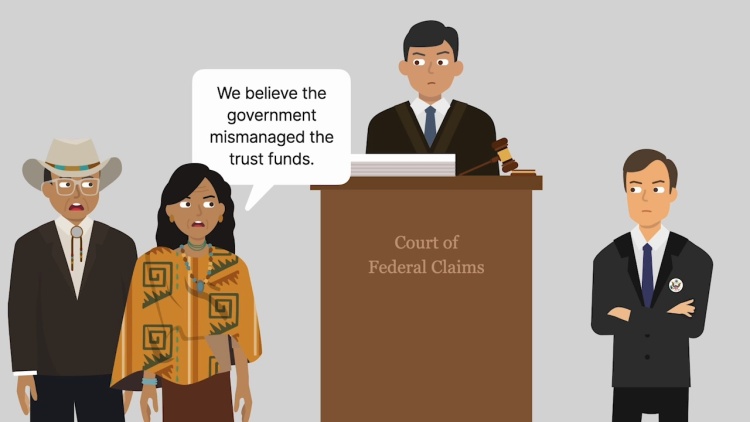United States v. Jicarilla Apache Nation
United States Supreme Court
564 U.S. 162, 131 S. Ct. 2313 (2011)

- Written by Sean Carroll, JD
Facts
Funds from natural resources taken from the reservation of the Jicarilla Apache Nation (Tribe) (plaintiff) were held in trust by the United States government (defendant). The Tribe brought suit against the government in the Court of Federal Claims, alleging mismanagement of these funds. During discovery, the Tribe requested certain documents containing legal advice from the United States Office of the Solicitor to the Department of Interior. The government asserted the attorney-client privilege. The Court of Federal Claims ordered the government to produce the documents, finding that because of the fiduciary relationship between the government and the Tribe, the attorney-client privilege did not apply. On petition for a writ of mandamus, the United States Court of Appeals for the Federal Circuit affirmed. The United States Supreme Court granted certiorari. The government argued, among other things, that its obligations with respect to the Tribe were creatures of statute, as opposed to the common law under which the fiduciary exception to the attorney-client privilege was created. The statutes and regulations in question delineated the government’s disclosure obligations with respect to the Tribe’s funds. Additionally, the regulations provided that the documents the Tribe requested were “the property of the United States.”
Rule of Law
Issue
Holding and Reasoning (Alito, J.)
Dissent (Sotomayor, J.)
What to do next…
Here's why 899,000 law students have relied on our case briefs:
- Written by law professors and practitioners, not other law students. 47,000 briefs, keyed to 994 casebooks. Top-notch customer support.
- The right amount of information, includes the facts, issues, rule of law, holding and reasoning, and any concurrences and dissents.
- Access in your classes, works on your mobile and tablet. Massive library of related video lessons and high quality multiple-choice questions.
- Easy to use, uniform format for every case brief. Written in plain English, not in legalese. Our briefs summarize and simplify; they don’t just repeat the court’s language.







